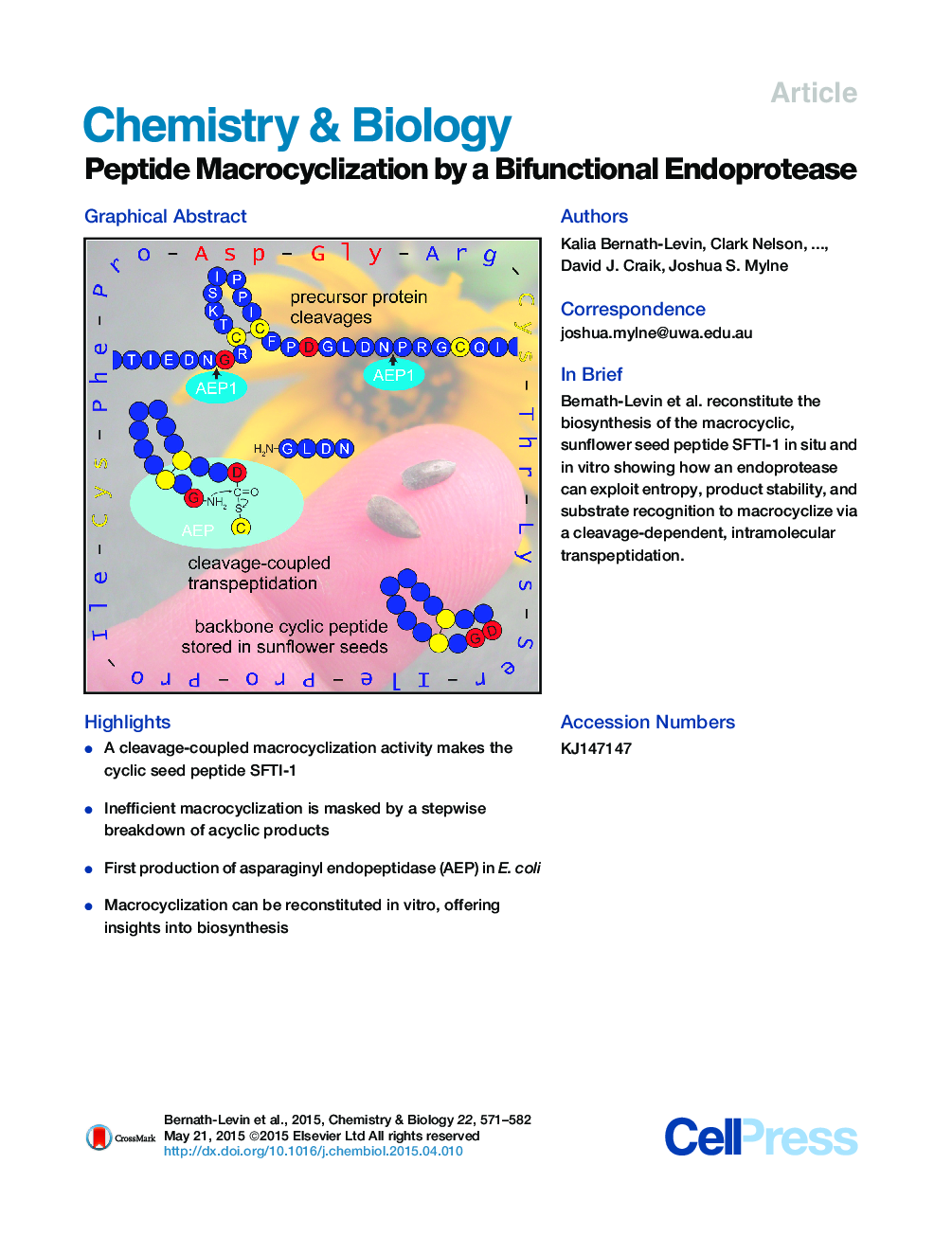| Article ID | Journal | Published Year | Pages | File Type |
|---|---|---|---|---|
| 1391970 | Chemistry & Biology | 2015 | 12 Pages |
•A cleavage-coupled macrocyclization activity makes the cyclic seed peptide SFTI-1•Inefficient macrocyclization is masked by a stepwise breakdown of acyclic products•First production of asparaginyl endopeptidase (AEP) in E. coli•Macrocyclization can be reconstituted in vitro, offering insights into biosynthesis
SummaryProteases usually cleave peptides, but under some conditions, they can ligate them. Seeds of the common sunflower contain the 14-residue, backbone-macrocyclic peptide sunflower trypsin inhibitor 1 (SFTI-1) whose maturation from its precursor has a genetic requirement for asparaginyl endopeptidase (AEP). To provide more direct evidence, we developed an in situ assay and used 18O-water to demonstrate that SFTI-1 is excised and simultaneously macrocyclized from its linear precursor. The reaction is inefficient in situ, but a newfound breakdown pathway can mask this inefficiency by reducing the internal disulfide bridge of any acyclic-SFTI to thiols before degrading it. To confirm AEP can directly perform the excision/ligation, we produced several recombinant plant AEPs in E. coli, and one from jack bean could catalyze both a typical cleavage reaction and cleavage-dependent, intramolecular transpeptidation to create SFTI-1. We propose that the evolution of ligating endoproteases enables plants like sunflower and jack bean to stabilize bioactive peptides.
Graphical AbstractFigure optionsDownload full-size imageDownload high-quality image (286 K)Download as PowerPoint slide
